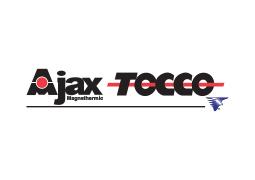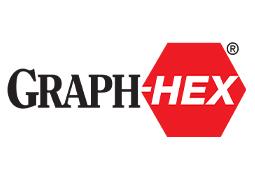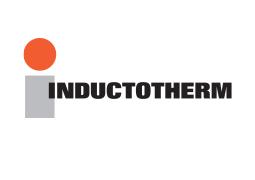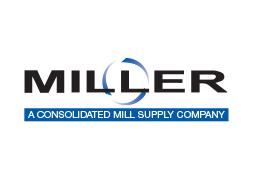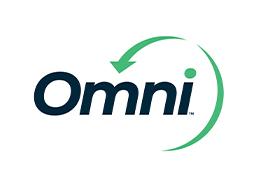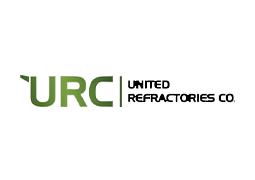Overview
The Melting Methods & Materials Division is hosting a Melting Conference in 2024. Industry experts in melting applications from across the metal casting industry will lead technical sessions covering a broad range of topics including cupola and electric melting practices, holding applications, melt efficiency, melt deck & furnace safety, refractory applications and best practices, labor retention, supply chain challenges, energy, along with many other relevant and topical areas of interest.
Ferrous or Non-Ferrous, this is the perfect opportunity for everyone from furnace operators to foundry management to gain practical knowledge while being exposed to the latest technologies available. Join the network of industry peers and experts at the AFS Melting Conference in Louisville, KY in November 2024.
For information about sponsorship opportunities at the event, please contact Kim Farrugia at kfarrugia@afsinc.org or click here.
Location
Hotel Information
Use link below to book room or call (502) 813-3800 and ask for the AFS room block.
Conference Agenda
Session Chair:

Tim Hoyt
Vice-Chair AFS Technical Council; Co-Chair 2024 Melting Conference; Manager, Product Services Engineering, Allied Mineral Products, Columbus, OH
Tim Hoyt
Vice-Chair AFS Technical Council; Co-Chair 2024 Melting Conference; Manager, Product Services Engineering, Allied Mineral Products, Columbus, OH
Dave Williams
Retired, Dublin, OH
For many years, involvement in melting and pouring of metals was my passion. Helping foundries succeed was always important for me. Being retired, I have appreciated the highs and lows of melting. I will highlight those highs and lows, while offering some key takeaways to benefit your foundry as well as cast a positive image on improving melt quality and safety. Metallurgists and Melters can be friends.
Session Chair:
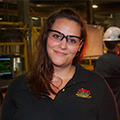
Ashley Folden-Ecker
Chair Coreless Subcommittee - Melting Methods and Materials Division; Co-Chair 2024 Melting Conference; Foundry Operations Manager, Dotson Iron Castings, Mankato, MN
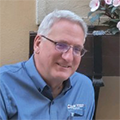
Dave Lazor
Technical Director, Ajax Tocco, Warren, OH

Jeremy McLimans
Southeast Foundry Sales Manager, Hickman, Williams & Co., Birminham, AL
Fluorspar is a useful tool to aid desulfurization in a lime-based process. It also comes with significant restrictions when working with the melt parameters of Ductile Iron production. A synthetic option is available as an alternative to natural ore Fluorspar. This option can increase the envelope for effective usage and efficiency. Fluorine mechanisms and process effects will be discussed in pursuit of desulfurization optimization.
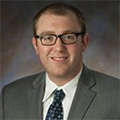
Andy Bain
Foundry Manager, Ford Meter Box, Wabash, IN
Jack Swanson
Vice President, Ironton LLC, Chargin Falls, OH
Eric Nelson
President, Eric Nelson Consulting LLC, Mankato, MN
Pig iron is a key raw material for the cast iron industry. Most pig iron consumed in the United States is in the form of Basic Pig Iron and is consumed in both integrated and electric arc furnace (EAF) steel mills. While integrated mills, by definition, produce their own pig iron via blast furnaces, EAF mills have traditionally relied upon imported pig iron. Today there are significant governmental, environmental and end user pressures to reduce material carbon footprints that are affecting both the steel and foundry markets. In this talk, the speakers will discuss potential changes in iron feedstock and a back-to-the-basics discussion around trialing new materials in a process. The speakers will highlight:
- The current and projected state of steel mills and how their raw material demands will impact the foundry industry.
- Impacts the changing mill requirements will have on the scrap stream as it relates to Carbon reduction goals.
- Direct Reduced Iron (DRI) and the impacts if it is used in an EAF, Cupola and/ or Induction Furnace.
- An alternative approach to producing pig iron by recycling byproducts and subprime feedstocks in a mini-blast furnace.
- Considerations when exploring various charge materials, specifically focusing on metal quality, recovery, and slag generation.
Session Chair:
Jeremy Mowry
Melting Methods and Materials Division Chair; Design Engineer, AMERICAN Cast Iron Pipe Company, Birmingham, AL
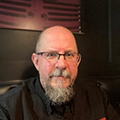
Ben Hunsicker
Senior Product Services Engineer, Allied Mineral Products, Columbus, OH
This presentation will review the basics of silica and alumina refractory materials as it relates to induction melting furnace applications. Advantages and disadvantages will be discussed as to how each refractory type can affect your operation.

Bobby Stone
Regional Sales Manager, Primetrade, Charlotte, NC
Grant Grimes
Sales Representative, Profound Alloys, Canonsburg, PA
Our supply chain is now more than ever influenced by issues occurring around the world. This session will discuss recent issues affecting our foundry and steel making raw material supply chain. Furthermore, thoughts on potential future supply chain influences will be discussed.
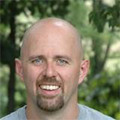
Trevor Beach
Senior Metallurgist, Betz Industries, Grand Rapids, MI 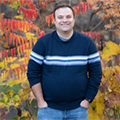
Mike Whaley
Melt Manager, Grede - Reedsburg, Reedsburg, WI 
Jacob Gerdt
Metallurgist, Waupaca Foundry, Marinette, WI
Mark Fields
Technical Sales Director, Glidewell Specialties Foundry, Calera, AL
A panel presentation identifying process considerations for ductile iron treatment methods from foundries with different casting sizes and annual volumes. Panelists represent iron foundries with different primary melting methods including cupola, coreless induction, and channel induction. Treatment methods covered include sandwich method, Georg Fischer, modified tundish, and wire treatment.
Dusty Morgan
Iron Control Tech, Charlotte Pipe and Foundry, Oakboro, NC
This presentation will cover the key points of the installation of a new electric melt system, discussing the challenges of transitioning from a 120-year-old cupola foundry to an electric melt shop. We will also look at the learning curves of furnace linings, mixing alloys, melt efficiency, and safety.
TBD Speaker
Drinks, appetizers, and socializing.
Session Chair:
Ashley Folden-Ecker
Chair Coreless Subcommittee - Melting Methods and Materials Division; Co-Chair 2024 Melting Conference; Foundry Operations Manager, Dotson Iron Castings, Mankato, MN
Session Chair:
Luke Dix
Past Chair Coreless Subcommittee - Melting Methods and Materials Division; Regional Sales Manager, ProFound Alloys, Canonsburg, PA
Joseph Pickard
ISRI, Washington D.C.

Eric Gokey
Melt Department Manager, Cadillac Castings Inc., Cadillac, MI
Cadillac Castings Inc. experienced an unprecedented event in which a failure in the system caused their cupola to freeze. Several methods of removing the “slug” of metallics from the stack were attempted. His case study will cover the events leading up to the freezing of the cupola, how the “slug” of metallics was eventually removed, and lessons learned along the way.
Todd Lyles
Business Manager - Melting, Specialty Foundry Products, Bessemer, AL
Mike Becker
Senior Sales Representative, Allied Mineral Products, Columbus, OH
James Kelley
Melt Supervisor, Lodge Cast Iron, South Pittsburg, TN
Refractories are a necessary evil in melting operations. Today’s melt operations are lean and efficiency is critical. How can we do more with less? This panel will discuss experiences related to melting and holding furnaces and molten metal transfer equipment refractories. Lessons learned and best practices will be covered.
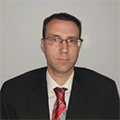
Brad Rudolph
Engineering and Maintenance Leader, IMC Metals, Shelby, NC
The presentation will review the challenges associated with and lessons learned with melting secondary materials in copper channel furnaces. There will be a focus on lining materials and operational practices, along with a discussion of trials, testing and analysis performed.
TBD Speaker
Registration
AFS member: $720 early | $900 standard
Non-member: $1,125 early | $1,350 standard
Early registration ends 10/2/2024
AFS presents a variety of technical and management conferences (in both in-person and virtual formats). The refund policy for AFS conferences is as follows: 1) Substitutions are accepted at no charge at any time up until the start of the conference; 2) Full refunds are offered if AFS is notified in writing of cancellation at least 30 days in advance of the conference. No refunds or credits are available for less than 30 days written notice.



